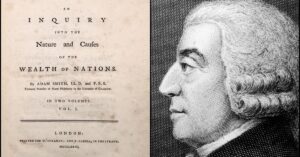Money: The Ultimate Incentive

“One of the greatest ironies of the modern world,” my friend Porter Stansberry wrote in a recent post on his website,” is how few people who enjoy the cornucopia of capitalism and free markets understand even the most basic elements of what creates wealth.”
In his masterwork An Inquiry into the Nature of Causes of the Wealth of Nations, Adam Smith, the father of modern economics, introduced the idea of “the price mechanism,” a “powerful, positive force of self-interest” that allows wealth to build rapidly among the entire population of a free economy.
By allowing thousands or even millions of individual actors to negotiate the price for things and services they want to buy and sell, Stansberry explains, a natural value is established for those things and services. That value rises and falls according to economic factors, such as supply and demand. And this, he argues, “allows farmers to know what to plant… industrialists to know what to produce… and capital markets to know what to finance and at what rates.”
“Absent this mechanism for communication and for rewarding production,” Stansberry says “an economy quickly falls apart. Instead of creating abundance and opportunity, society is soon rendered into competing tribes, each organizing only for their benefit. The result is poverty, anomie, violence, and desperation. And these changes happen fast – within only a decade or so.”
